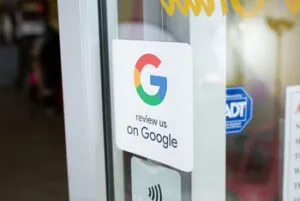More and more businesses are harnessing artificial intelligence (AI) for SEO to streamline their strategies, enhance search engine rankings, and eventually improve their online presence.
This article provides an in-depth overview of using AI for SEO, covering everything from keyword research to content creation, competitor analysis, and optimising content for SEO.
Whether you’re an SEO professional for a dental clinic or a dental practice owner, understanding AI’s power in SEO is necessary for staying ahead of the competition.
Understanding AI For SEO Tasks

These tools can automate time-consuming tasks, provide data-driven insights, and optimise content to align with search engine algorithms.
The application of AI in SEO is rapidly evolving, especially for those who write more than one blog post daily. AI offers new opportunities to improve website performance and achieve higher search engine rankings.
Below, we explore the different ways AI can be utilised in SEO.
How To Use AI For SEO Optimisation
AI is a flexible technology that may be used in many different SEO contexts. AI can help optimise workflows and boost productivity in a variety of areas, including technical SEO, content production, and keyword research.
This section will explore how to effectively use AI for SEO and provide detailed insights into each application.
Keyword Research
Effective keyword research is crucial for driving traffic to your website. AI-powered tools excel at analysing large data sets to identify high-potential keywords.
These tools evaluate search volume, keyword difficulty, and search intent, providing actionable insights that can inform your SEO strategy.
Content Gap Analysis
Identifying content gaps on your website is essential for staying competitive. AI tools can automate this process by comparing your content to your competitors’, highlighting areas for improvement.
Addressing these gaps can help you create content that fills these voids and enhances your site’s overall SEO.
Competitor Analysis
Competitor analysis is an integral part of any SEO strategy. AI tools can streamline this process by providing an in-depth analysis of your competitors’ SEO efforts, including keyword strategies, content performance, and backlink profiles.
This information can help you refine your strategy and gain a competitive edge.
Content Creation And Optimisation
Creating and optimising content is vital for improving your site’s visibility on search engines. AI-powered tools can assist in generating high-quality, SEO-optimised content that aligns with search engine algorithms.
These tools can also provide recommendations for optimising existing content, ensuring it remains relevant and effective.
Technical SEO Optimisation
Technical SEO is the backbone of any SEO strategy. AI tools can help optimise your website’s technical aspects, such as site speed, mobile friendliness, and schema markup.
By automating these tasks, AI can ensure your website meets SEO best practices and performs well in search engine rankings.
Best AI For SEO Optimisation
With the increasing use of AI in SEO, various AI-powered solutions have emerged to assist with different aspects of SEO optimisation. These tools can assist in phases like keyword research, content creation, and optimisation.
Below, we will explore some of the best AI tools available for SEO optimisation and how they can benefit your SEO efforts.
AI Tools For Keyword Research
Keyword research is necessary to determine the terms and phrases your audience is searching for.
The following AI tools are renowned for their effectiveness in keyword research:
Ahrefs
Known for its comprehensive keyword analysis features, Ahrefs provides data on search volume, keyword difficulty, and click-through rates, helping you identify high-potential keywords.
SEMrush
This tool offers extensive keyword research capabilities, including keyword difficulty analysis, search volume data, and competitive analysis.
SEMrush also provides keyword suggestions and trend analysis to help you stay ahead.
Moz Keyword Explorer
Moz offers an intuitive keyword research tool that provides in-depth keyword analysis, including metrics like search volume, keyword difficulty, and opportunity scores.
AI Tools For Content Gap Analysis
Identifying content gaps is crucial for ensuring your website comprehensively covers relevant topics.
These AI tools excel in content gap analysis:
SEMrush
Beyond keyword research, SEMrush excels in content gap analysis. It compares your content to your competitors’ content, identifying areas for improvement.
Ahrefs
Ahrefs’ Content Gap tool allows you to see which keywords your competitors rank for, but you don’t.
This insight can help you create targeted content to fill those gaps.
BuzzSumo
This tool helps you discover what content is performing well in your niche, enabling you to identify content opportunities and gaps you can capitalise on.
AI Tools For Competitor Analysis
Understanding your competitors’ strategies is vital for developing a competitive SEO strategy.
These AI-powered tools are among the best for competitor analysis:
SEMrush
SEMrush provides a comprehensive competitor analysis toolkit, including domain comparison, backlink analysis, and competitor keyword analysis.
It gives you the opportunity to track your competitors’ rankings and SEO strategies.
Ahrefs
Ahrefs offers robust competitor analysis features, including detailed insights into competitors’ backlinks, organic keywords, and top-performing content.
It helps you find out your competitors’ strengths and weaknesses.
SpyFu
SpyFu is an AI SEO tool that excels at competitor analysis, offering insights into competitors’ keywords, ad strategies, and backlink profiles.
It’s an excellent tool for uncovering competitive opportunities.
AI Tools For Content Creation And SEO Optimisation

AI-powered tools are now indispensable for streamlining content creation, enhancing quality, and ensuring that your content meets search engine requirements.
Below is a selection of top AI tools that excel in content creation and optimisation:
Surfer SEO
Surfer SEO is a robust tool that combines content optimisation with keyword research.
Based on the breakdown of top-ranking pages, it offers real-time recommendations on keyword usage, content length, and structure, helping you craft content that is primed for success.
MarketMuse
MarketMuse is an AI-powered platform that offers deep content analysis and optimisation suggestions.
It helps you identify content gaps, suggests topics, and provides insights into the ideal content structure and length to improve search engine rankings.
Frase
Frase uses AI to assist in content creation. It analyses your target audience’s search intent and recommends content topics, headings, and keyword usage.
It also offers a content brief generator, making the content creation process more efficient.
Jasper AI (Formerly Jarvis)
Jasper AI is an AI writing assistant that can generate entire articles, blog posts, and other types of content.
It helps streamline the content creation phase by offering suggestions, structuring content, and writing in various tones and styles, all while keeping SEO in mind.
Copy.ai
Copy.ai is designed to generate creative content ideas and write high-quality copy quickly.
It’s particularly useful for creating SEO-friendly blog posts, product descriptions, and marketing copy, emphasising natural language that appeals to search engines and readers.
AI Tools For Content Refresh
Keeping your content fresh and relevant is essential for maintaining strong SEO performance over time.
As search engines continue to update their algorithms, previously high-ranking content may begin to lose its effectiveness.
AI tools are crucial in identifying and rejuvenating such content, ensuring it remains competitive.
Two standout tools in this area are ClearScope, Frase, and SurferSEO. Each offers unique capabilities for optimising and revitalising your website’s content.
ClearScope
ClearScope is an AI-powered platform designed to enhance the relevance of your content regarding targeted keywords.
ClearScope provides comprehensive recommendations for improving your content by analysing top-ranking pages for your chosen keywords.
These suggestions may include adding specific terms, covering certain topics, or restructuring your content to better match the search intent.
For example, if your content once ranked well for a particular keyword but has since dropped in visibility, ClearScope can identify gaps in your current content compared to the top-ranking pages.
By following ClearScope’s suggestions, you can update your content to include these missing elements, making it more comprehensive and aligned with what search engines deem relevant.
ClearScope’s user-friendly interface also makes it easy to see where your content is lacking. The tool assigns a content grade based on how well your page matches the top-performing content, allowing you to track improvements as you update.
By continuously refining your content using ClearScope, you can maintain or even enhance your page’s ranking over time.
Frase
Frase is another powerful AI tool that excels at content optimisation and refreshing existing content.
Frase analyses your content against the top-ranking pages for your target keywords, identifying areas where your content may fall short and offering actionable insights for improvement.

If your content’s performance has declined, Frase can help you make the necessary updates to improve its relevance and ranking potential.
One of Frase’s key features is its ability to generate content briefs that outline the essential elements your content needs to compete effectively.
These briefs help you identify content gaps, enabling you to add new sections or update existing ones, making your content more comprehensive.
Frase also provides a detailed analysis of the competition, allowing you to see what elements contribute to the success of top-performing pages.
By implementing Frase’s suggestions, you can keep your content fresh, relevant, and aligned with the latest search trends, ensuring it continues to drive traffic and perform well in search engine rankings.
SurferSEO
SurferSEO is a highly regarded AI tool that provides in-depth content analysis and optimisation to boost content performance.
SurferSEO combines data from top-ranking pages and uses advanced algorithms to generate actionable recommendations for improving your content.
SurferSEO’s content editor allows you to optimise your content in real-time with suggestions for keyword usage, content structure, and length.
This makes it easier to align your content with search intent and the factors driving top-performing pages.
By following SurferSEO’s guidelines, you can enhance the relevance and competitiveness of your content, helping it rank higher in search engine results.
One of SurferSEO’s standout features is its ability to examine various ranking factors from the top results for your target keyword.
This analysis includes word count, keyword density, and more. With this information, SurferSEO provides a clear roadmap for refreshing and optimising your content to achieve better rankings.
Additionally, SurferSEO offers features for content audit, allowing you to identify content gaps and opportunities for fresher content.
This helps ensure your site remains comprehensive and aligned with the latest SEO best practices.
AI-Generated Content: Pros And Cons
AI-generated content is a growing SEO trend, offering advantages and challenges.
While AI tools can quickly produce high-quality content, they may not always capture the subtle nuances of human writing.
It is important to review and modify AI-generated content to ensure it aligns with your brand’s voice and messaging.
Despite these challenges, AI-generated content can be a valuable asset for scaling your content creation efforts.
Frequently Asked Questions
Can AI replace human SEO experts entirely?
While AI has greatly enhanced SEO processes by automating tasks like keyword research, content optimisation, and data analysis, it cannot entirely replace human SEO experts.
Human expertise is essential for interpreting AI-generated insights, making wise decisions, and understanding the nuances of audience behaviour that AI may not fully grasp.
SEO is as much an art as it is a science, and human creativity, experience, and judgement remain irreplaceable.
How does AI help improve website user experience (UX) for SEO?
AI can significantly improve website UX by analysing user behaviour, such as how visitors navigate the site, what content they engage with, and where they drop off.
AI-powered tools can suggest UX improvements, such as optimising site speed, enhancing mobile responsiveness, and simplifying navigation.
These all contribute to better SEO performance by lowering bounce rates and increasing time on site.
What is the role of AI in voice search optimisation?
AI plays a critical role in voice search optimisation by understanding natural language processing (NLP) and predicting how users phrase their queries.
Given the rise of voice-activated gadgets, AI technologies can assist in optimising content to fit the conversational tone of voice searches currently used. This will ensure that websites rank higher for speech-based queries.
This includes optimising for long-tail keywords and questions.
Can AI help manage and analyse SEO data from multiple platforms?
Yes, AI tools can aggregate and analyse SEO data from various tools and platforms, such as Google Analytics, Google Search Console, and social media channels.
These tools can identify trends, track key performance indicators (KPIs), and provide insights that help refine SEO strategies across different platforms, making it easier to manage and improve overall SEO performance.
How does AI handle the challenge of evolving search engine algorithms?
AI tools are designed to adapt to changing search engine algorithms by continuously learning from large datasets. They can quickly identify shifts in ranking factors and adjust SEO strategies accordingly.
While search engine algorithms constantly evolve, AI tools allow dentists to stay ahead by suggesting necessary real-time adjustments.
How does AI assist in local SEO optimisation?
AI enhances local SEO by analysing local search trends and user behaviour to optimise content for specific geographic areas.
AI tools can suggest local keywords, optimise Google My Business profiles, and analyse competitor strategies in the local market.
This helps businesses enhance their visibility in local search results, which is crucial for attracting customers in specific regions.
Are there AI SEO tools that focus specifically on image and video SEO?
Yes, AI tools are increasingly being used to optimise images and videos for SEO. Tools like Google Vision AI can analyse image content and suggest relevant alt text, captions, and keywords.
For videos, AI can assist with optimising video titles, descriptions, and transcripts to ensure they rank better in search engines. Additionally, AI can help tag and categorise visual content to improve discoverability.
Can AI help manage and optimise multilingual SEO strategies?
AI effectively manages multilingual SEO by automating content translation and optimising it for different languages and regions.
AI-powered tools can suggest culturally relevant keywords, adapt content to local search trends, and ensure that the SEO strategy aligns with each target market’s linguistic and cultural nuances, improving global search engine rankings.
How does AI contribute to predictive SEO?
Predictive SEO involves using AI to forecast future trends and search engine behaviours. By analysing historical data, search patterns, and emerging trends, AI tools can predict which keywords or topics will likely gain traction.
This allows SEO professionals at dental practices to create and optimise content proactively, staying ahead of the competition and ensuring long-term SEO success.
How does AI help optimise featured snippets and other rich results?
AI can assist in optimising content for featured snippets and rich results by analysing the structure and content of pages that currently rank for these positions.
AI-powered tools can suggest content modifications, such as using structured data, creating concise answers to common questions, and optimising for specific formats that are more likely to appear in rich results.
How can AI be used to enhance SEO content personalisation?
AI enhances content personalisation by analysing user data to deliver tailored content experiences. AI tools can segment audiences based on behaviour, preferences, and demographics and then create or recommend content that resonates with each segment.
This approach improves user engagement and satisfaction, leading to better SEO performance.
How does AI improve the efficiency of SEO audits?
AI improves the efficiency of SEO audits by automating the process of identifying technical issues, analysing on-page SEO factors, and assessing overall site health.
Tools like DeepCrawl and Sitebulb use AI to quickly scan websites, detect issues such as broken links, duplicate content, and site speed problems, and provide actionable recommendations for improvement.
Are There Free AI SEO Tools Available?
Yes, there are several free AI SEO tools available that can help you optimise your SEO efforts without requiring a financial investment. These tools often provide basic functionalities that are sufficient for those just starting out with AI-driven SEO strategies.
For example, Google Keyword Planner is a free AI SEO tool that can help with keyword research by offering insights into search volumes and keyword competition. Ubersuggest, a popular SEO tool, offers a free version for those who may want to try it.
Bringing It All Together: AI’s Role In Modern SEO
AI for SEO is no longer a futuristic concept; it’s a reality that is transforming how businesses approach search engine optimisation.

Whether you’re focusing on keyword research, content creation, or technical SEO, AI offers powerful solutions to enhance your website’s performance.
Embrace the power of AI for SEO and unlock new opportunities for growth and success in the digital landscape.
If you’re keen to leverage the power of AI for improved SEO results, let our expertise guide you. Our team is skilled in integrating advanced AI tools to optimise your SEO efforts effectively.
Be sure to contact Mediboost in Sydney today at 1300 163 058 to discover how we can tailor these solutions to meet your unique needs and drive superb business outcomes.
Sources:
Abbamonte, Kiera. “The 4 Best Free Keyword Research Tools in 2024.” Zapier, 20 May 2024, zapier.com/blog/best-keyword-research-tool. Accessed 2 Sept. 2024.
Condron, Sidra. “Run a Content Gap Analysis to Create Content People Crave.” The Official SpyFu Blog, 11 Jan. 2024, www.spyfu.com/blog/content-gap-analysis. Accessed 2 Sept. 2024.
Čuljak, Sunčica. “6 Ways to Use AI in Competitive Analysis.” Determ, 20 Dec. 2023, determ.com/blog/ai-in-competitive-analysis. Accessed 2 Sept. 2024.
Dumitriu, Dan, and Mirona Ana-Maria Popescu. “Artificial Intelligence Solutions for Digital Marketing.” Procedia Manufacturing, vol. 46, Jan. 2020, pp. 630–36. https://doi.org/10.1016/j.promfg.2020.03.090.
Hetler, Amanda. “Pros and Cons of AI-generated Content.” TechTarget, 8 July 2024, www.techtarget.com/whatis/feature/Pros-and-cons-of-AI-generated-content. Accessed 2 Sept. 2024.
Kilichev, Bayramali, et al. “A Development of Personalized Content Creation Technology Model Using NLP and AI Integrated System.” IEEE Conference Publication, 14 May 2024, ieeexplore.ieee.org/document/10617129. Accessed 2 Sept. 2024.
Singh, Bismanjeet, and Ajay Kumar Pathania. “AI-Driven Content Creation and Curation in Digital Marketing Education: Tools and Techniques.” International Journal of Engineering Science and Humanities, vol. 14, no. Special Issue 1, May 2024, pp. 14–26. https://doi.org/10.62904/8fbh3144.
Ziakis, Christos, and Maro Vlachopoulou. “Artificial Intelligence’s Revolutionary Role in Search Engine Optimization.” Strategic Innovative Marketing and Tourism, Springer, 2024, pp. 391–99. https://doi.org/10.1007/978-3-031-51038-0_43.



